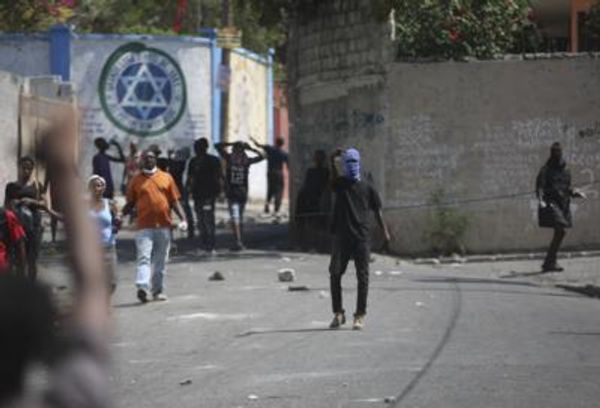BERLIN — Germany and Britain vowed to send Ukraine more weapons and work together to put pressure on Russian President Vladimir Putin, downplaying differences over imposing tougher sanctions on Moscow.
Speaking after talks in Downing Street, Prime Minister Boris Johnson said the U.K. would send a further 100 million pounds ($130 million) worth of military equipment, including precision munitions that can linger in the sky until they find their target. Chancellor Olaf Scholz said Germany would also continue deliveries to Kyiv, without specifying types or amounts.
“Unity is key,” Scholz said. “Unity in the EU, unity in the G-7 and in NATO. All that is something that Putin did not expect. He was sure that we would be divided. And he had to see that we were united and he will see that we will remain united.”
Despite years of strain over Brexit, the two leaders made a show of presenting a united front, announcing plans for regular government consultations, including a joint Cabinet meeting, to liaise more closely on areas ranging from defense and security to economic and scientific cooperation.
Both leaders condemned Russia’s attacks on civilians. Johnson referred to the “unconscionable bombing” of refugees at a train station in eastern Ukraine on Friday. “It is a war crime indiscriminately to attack civilians and Russia’s crimes in Ukraine will not go unnoticed or unpunished,” he said.
The meeting came after the European Union late Thursday agreed to ban coal imports from Russia in its first move targeting crucial energy revenue. But some member states say the bloc needs to do much more, for example by stopping oil imports as well, to punish Moscow for atrocities in Ukraine.
With Germany reliant on Russia for 40% of its gas supplies and the fuel crucial in some industrial processes, Europe’s largest economy has been reluctant to fully target energy, and Scholz defended Germany’s decision to continue buying Russian oil and gas for now.
“We want to get fossil fuels from other places than Russia. We are working very hard to make this happen,” he said when pressed on the topic by a reporter. “We are doing all we can. We are doing a lot.”
Instead of risking an economic shock, Scholz has said Berlin is accelerating the expansion of renewable energy and finding alternative suppliers of fossil fuels. The aim is to wean Germany off Russian coal by fall and stop nearly all oil imports by the end of this year — a similar time frame to Britain’s plans.
For natural gas, the picture is more complicated. While the U.K. has limited exposure, Scholz’s government has said it will take Germany more than two years to cut the share of Russian gas in its total imports of the fuel to about 10%. In the short term, new legislation requires gas-storage operators to refill capacity for winter.
The two countries differ more on refugees. While the U.K. has placed numerous hurdles on people seeking shelter from Russia’s attacks, Germany has taken in more than 300,000 refugees so far. Scholz said Thursday the government has earmarked 2 billion euros ($2.2 billion) to help accommodate displaced Ukrainians.
Scholz took a thinly veiled swipe at Johnson by saying he wished more countries would take in refugees from Ukraine. But the prime minister wouldn’t let that or Brexit tensions distract from the show of solidarity.
“The almost seamless harmony you observe between Britain and Germany I would not interrupt by going any further,” Johnson said. “We are really very very much united on virtually every other issue of policy.”







